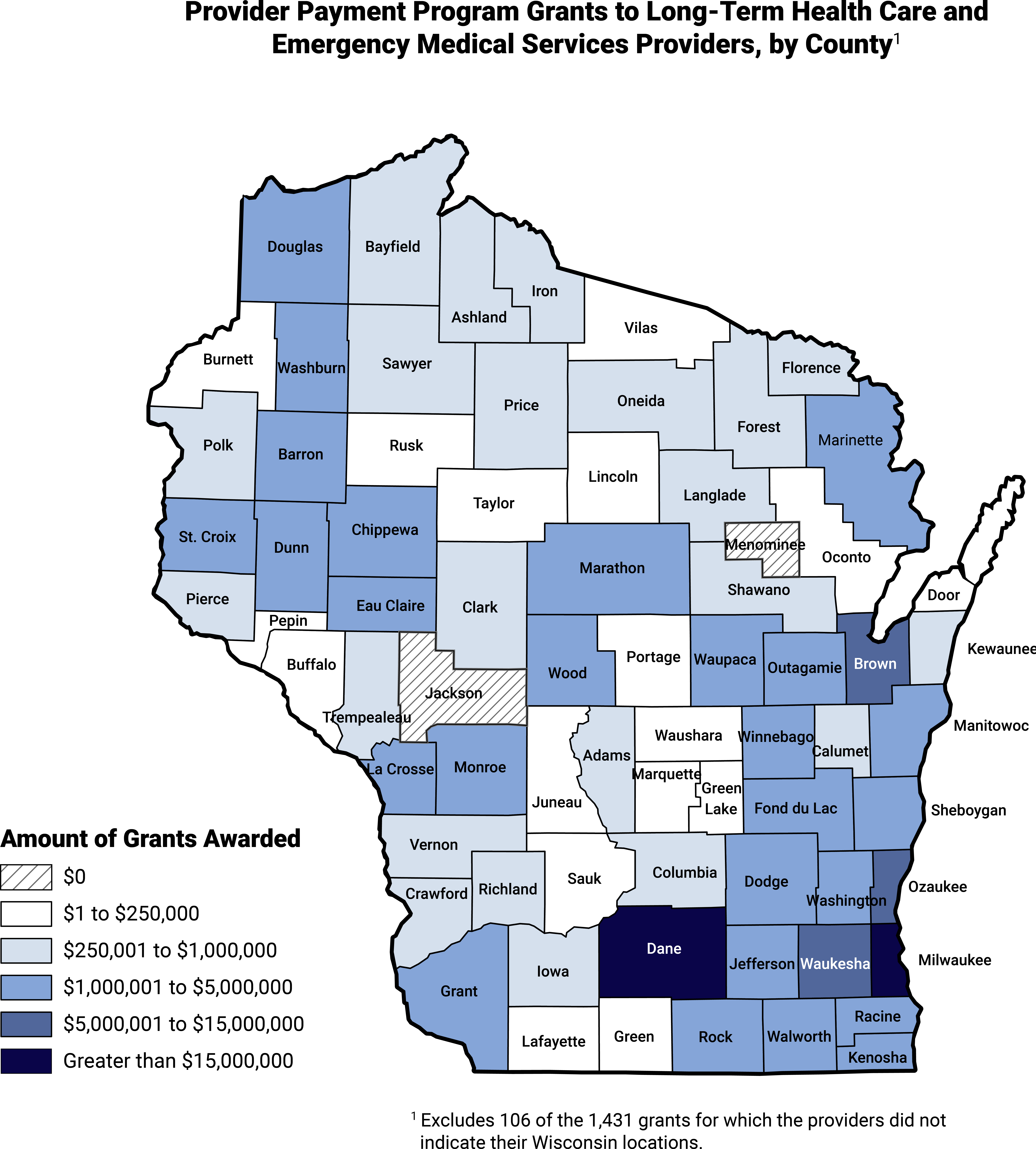In response to the Joint Legislative Audit Committee’s request that we evaluate how state agencies spent supplemental federal funds the State received because of the public health emergency, we have completed a limited-scope review of how the Department of Health Services (DHS) used such funds to administer its Provider Payment and Ventilator Stewardship programs. We also assessed program integrity efforts related to supplemental federal funds that were conducted by DHS’s Office of the Inspector General (OIG).
From March 2020 through June 2022, the Department of Administration (DOA) allocated $202.5 million in supplemental federal funds to DHS to support Provider Payment program grants to long-term health care and emergency medical services providers and the Ventilator Stewardship program. These funds included $195.0 million from the Coronavirus Aid, Relief, and Economic Security Act and $7.5 million from the American Rescue Plan Act.
DHS established the Provider Payment program to award grants to various entities, including long-term health care and emergency medical services providers that were affected financially by the public health emergency. Grant applicants could request separate amounts for lost revenue, increased equipment costs, and increased staffing costs. From March 2020 through June 2022, DHS awarded $159.6 million in program grants to 1,431 long-term health care and emergency medical services providers.
We found that DHS did not specify the types of documentation applicants were required to maintain in order to support their requested amounts, did not establish written policies for reviewing the amounts requested by grant applicants, and awarded $201,000 to adult family homes that it had determined did not submit sufficient documentation to support their requested amounts.
To assess DHS’s administration of the program, we reviewed the available documentation for 31 randomly selected grants totaling $3.2 million. We question $518,700 that DHS paid to 10 grant applicants that did not submit sufficient documentation to support their grant applications or the grant amounts they requested.
We provide DHS with recommendations to improve how it administers its grant programs.
DHS established the Ventilator Stewardship program to loan or deploy ventilators to hospitals, fire and rescue departments, and emergency medical services providers. From March 2020 through June 2022, DHS spent $38.7 million to purchase and maintain 1,542 ventilators.
As of March 2022, 308 ventilators were deployed, which was 20.0 percent of all 1,542 ventilators and was the most deployed at one time from September 2020 through September 2022.
We found that DHS did not execute loan agreements with all entities to which it deployed ventilators and did not inventory the ventilator-related equipment it had purchased. Six ventilators, with a combined value of $122,300, were missing as of January 2023. We also found that DHS did not regularly track whether the ventilators had been maintained by the firm with which it contracted or develop a plan for the future use of the ventilators.
We provide DHS with recommendations to improve how it administers the Ventilator Stewardship program.
Statutes established OIG, which is intended to help ensure integrity in programs DHS administers and DHS’s internal operations. As of December 2022, OIG had completed one audit of a portion of the $653.8 million in supplemental federal funds that DOA had allocated to DHS from March 2020 through June 2022 and had not begun other audits of these funds.
We found that DHS did not adhere to various best practices because it did not publicly report summary results of OIG’s audit and monitoring efforts, did not require OIG’s internal audit section to submit in writing a proposed annual internal audit plan, and did not include on its website the internal audit section’s reports.
We provide DHS with recommendations to improve how OIG ensures program integrity, including in programs supported by supplemental federal funds. In addition, the Legislature could consider modifying statutes to require DHS to publicly report certain information about OIG.
Please see the complete list of our 20 recommendations here.





